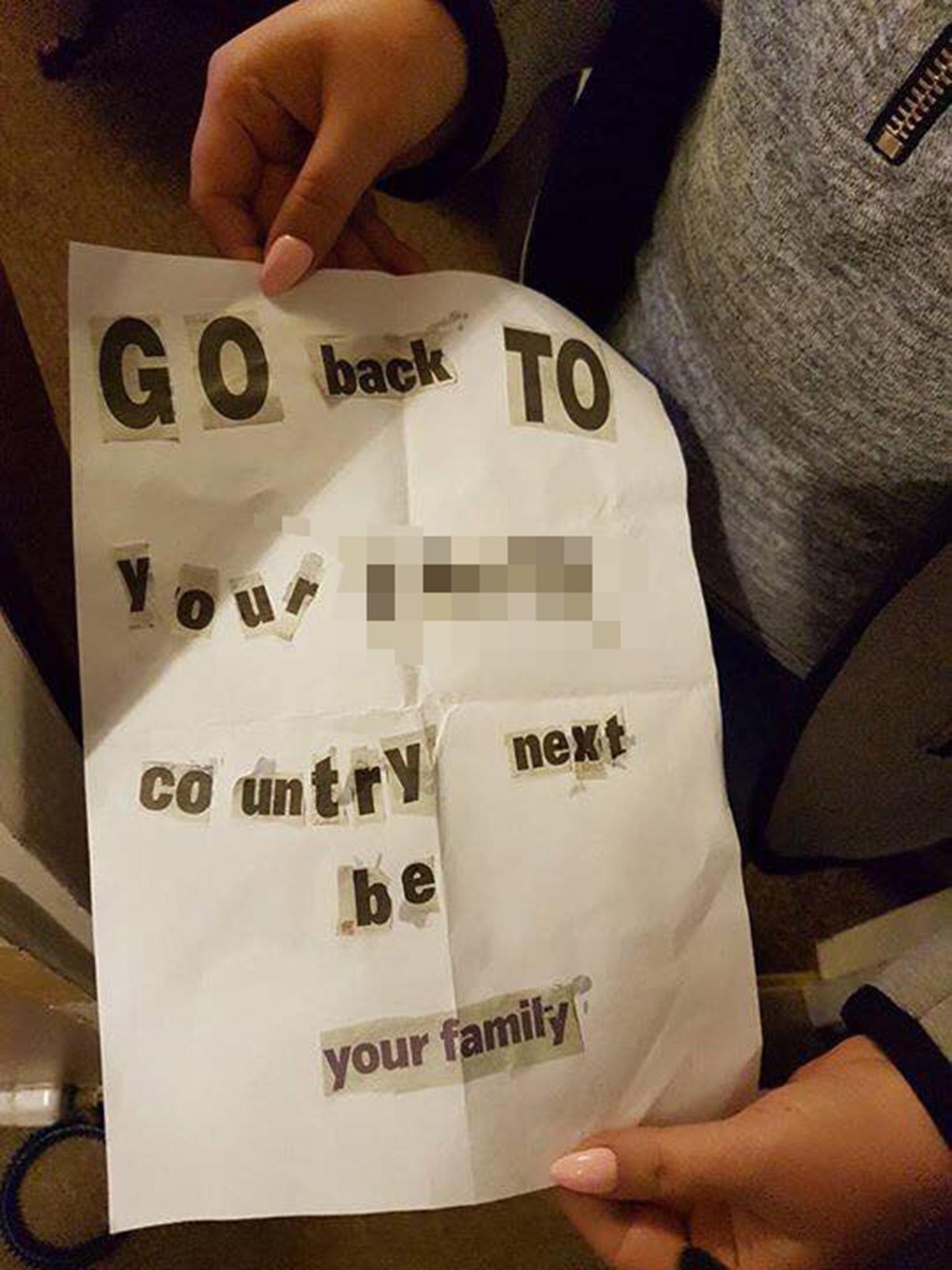New Government urges tougher sentences for hate crimes after spike in reports following EU referendum result
Home Office action plan includes new guidance for prosecutors in how to deal with racially and religiously aggravated offences

Your support helps us to tell the story
From reproductive rights to climate change to Big Tech, The Independent is on the ground when the story is developing. Whether it's investigating the financials of Elon Musk's pro-Trump PAC or producing our latest documentary, 'The A Word', which shines a light on the American women fighting for reproductive rights, we know how important it is to parse out the facts from the messaging.
At such a critical moment in US history, we need reporters on the ground. Your donation allows us to keep sending journalists to speak to both sides of the story.
The Independent is trusted by Americans across the entire political spectrum. And unlike many other quality news outlets, we choose not to lock Americans out of our reporting and analysis with paywalls. We believe quality journalism should be available to everyone, paid for by those who can afford it.
Your support makes all the difference.Prosecutors will be urged to press for tougher sentences for perpetrators of hate crimes after a surge in reported incidents in the wake of the EU referendum.
A new fund will also be established for “protective security measures” at synagogues, mosques, churches and other places of worship. The steps will be outlined in the Government's new hate crime action plan, which will be published next week.
It follows a sharp rise in alleged offences and incidents reported to police in the weeks before and after the referendum last month.
The Home Office said the action plan will set out steps to boost reporting of offences and support victims. Prosecutors will be issued with fresh guidance on racially and religiously aggravated offences and encouraged to pursue tougher sentences by applying to courts to exercise existing powers to increase penalties in hate-crime cases.
A £2.4m fund will be set up for protective security measures at vulnerable places of worship, while there will also be “targeted work” to prevent hate crime on public transport and tackle attacks on Muslim women, as well as a continued emphasis on eradicating anti-Semitism.
Home Secretary Amber Rudd said: “Hatred directed against any community, race or religion has no place whatsoever in our diverse society and it needs to be kicked to the kerb. We are Great Britain because we are united by values like democracy, free speech, mutual respect and opportunity for all. Where crimes are committed we must make sure victims have the confidence to report incidents and the law is rigorously enforced.
“At a time of increased concerns about a climate of hostility towards people who have come to live in our country, let me be absolutely clear that it is completely unacceptable for people to suffer abuse or attacks because of their nationality, ethnic background or colour of their skin. We will not stand for it.”
The new action plan will set out “robust and comprehensive steps” to eradicate hate crime, Ms Rudd said.
She added: “I am extremely proud of the rich diversity and tolerance of our society and the shared values that underpin it. They are something we must all work together to treasure and protect. Together, by standing against hate and for tolerance, we can build a better and more united Britain that works for everyone.”
A spate of reports in the wake of the EU referendum sparked fears of a wave of xenophobic and racial abuse.
Figures released on Friday showed more than 6,000 alleged hate crimes and incidents were reported to police in England, Wales and Northern Ireland in four weeks from the middle of last month.
The daily rate peaked at 289 reports on 25 June, the day after the referendum result was announced.
The main type of offence reported over the month was “violence against the person”, which includes harassment and common assault, as well as verbal abuse, spitting and “barging”. Public order offences and criminal damage were the second and third most common incidents respectively.
PA